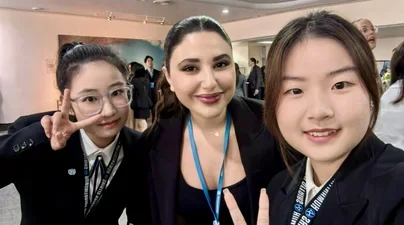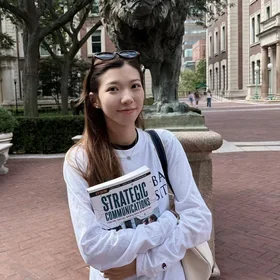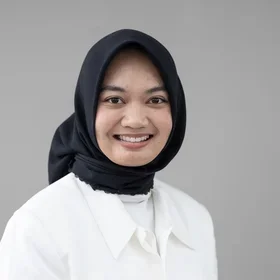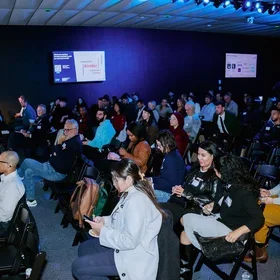By Dana El Khoury, Student in the M.S. in Negotiation and Conflict Resolution Program, School of Professional Studies
I landed in Bangkok carrying a suitcase and a question: What does peace look like in a world that seems perpetually at war?
As a Lebanese-Ukrainian student of Negotiation and Conflict Resolution at Columbia University, I have grown up in the shadows of unresolved histories. Yet nothing prepared me for the sheer emotional weight and profound clarity that came from hearing survivors of genocide speak at the UN Conference Centre during the 4th Global Peace Summit.
Over three days in January, delegates from around the world—students, advocates, and peacebuilders—came together not just to talk about peace but to reckon with it. This was more than a conference; it was a reminder that peace is not a luxury—it is a lifeline.
Every session at the summit was a confrontation with humanity’s highest aspirations and deepest failures. From the powerful remarks by Steve Killelea, founder of the Institute for Economics & Peace, to the soul-shaking stories of survival from Loung Ung (Cambodia), Claude Gatebuke (Rwanda), and Niemat Ahmadi (Darfur), and the impassioned address by H.E. Ambassador Walid Abu Ali of the State of Palestine, the summit forced us to sit with uncomfortable truths. The trauma was not abstract. It had names, timelines, and consequences still playing out today.
As Peace Ambassadors, we were not there as spectators. We listened. We asked hard questions. We shared stories. I found myself in conversation with peers from all over the world, each carrying their own burdens, and yet all driven by the same desire: to be agents of change in a world unraveling at its seams.
One theme echoed louder than the rest: Conflict may be universal, but so is the will to overcome it. It gave me hope, not the hollow kind, but the kind forged through shared experience, discomfort, and deliberate action. The summit reminded me that the leaders of tomorrow do not have to replicate the power games of the past. They can, and must, choose differently.
This is particularly true now. Around the world, conflict is escalating at alarming rates. But amid that rise, support for the very institutions designed to keep the peace, like the United Nations, is declining. We are watching mandates shrink, funding dry up, and faith in multilateralism fade. It is our generation’s task to resist this trend. If there was ever a time to invest in diplomacy, dialogue, and international cooperation, it is now.
Bangkok changed me. I returned to New York with more than just notes and photos; I came back with a mandate. I realized that peacebuilding is not reserved for summits or speeches. It starts at the grassroots level, in classrooms, boardrooms, policy papers, and the small moments of courageous listening. The summit lit a fire in me to keep speaking up, to keep building coalitions, and to demand that institutions do better, because they must.
I may not have the power to end war, but I do have the tools, the voice, and the commitment to challenge its logic. And if the Global Peace Summit taught me anything, it is that I am not alone. Let us not forget: Pax optima. Peace is the greatest good.

Negotiation and Conflict Resolution student Dana El Khoury (middle) poses for a photo with fellow attendees at the Global Peace Summit in Bangkok.
Views and opinions expressed here are those of the authors, and do not necessarily reflect the official position of Columbia School of Professional Studies or Columbia University.
About the Program
Columbia University’s Master of Science in Negotiation and Conflict Resolution prepares students to analyze the root causes and dynamics of conflict and to transform disputes through reasoned and resourceful interventions. The program focuses on developing self-awareness, tenacity, and interpersonal competency; building common ground; opening lines of communication; ensuring representation and recognition; and building sustainable possibilities for resolution.
The program has on-campus and online (with residency) modality options. Learn more about the M.S. in Negotiation and Conflict Resolution program here.


